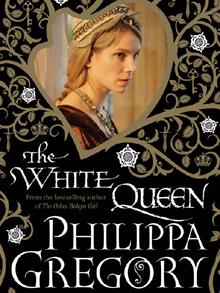In Philippa Gregory’s The Cousins’ War series, Elizabeth of York falls in love with King Richard III while she is serving as a lady in waiting for Queen Anne Neville. So what? – You may ask. Did I mention that Richard III is her uncle who had declared his brother’s marriage to Elizabeth Woodville invalid and made all their children (including Elizabeth of York) bastards? Did I mention that Elizabeth of York’s brothers (the heir to the throne) had gone mysteriously missing while under the guardianship of him?
It seemed extraordinary that out of all men, Elizabeth would fall for someone who had ousted her family out of their rightful place. And I was dying to know if Richard did flaunted their courtship in order to weaken her family’s alliance with the House of Lancaster who were continuous threat to his throne.
So how much of this is a creation of a novellist, and how much of it is a fact?
The speculation of their incestuous relationship actually dates back a long way – to their very own time.
After Richard’s wife Anne Neville’s death in March 1485, rumours spread that the King intended to marry his niece, Elizabeth. Although a marriage between uncle and niece was not strictly forbidden by the church, it had caused much revulsion among the councilors, and Richard’s most trusted men Ratcliffe and Catesbury warned him that such decision would lose support of Northerners as it would seem Richard had caused the death of his wife in order to marry Elizabeth. Twelve doctors of divinity were also summoned by Parliament to put forward their objections and Richard then publicly denied the accusation.
There is also an account by Sir George Buck, an antiquarian and Master of the Revels to King James I of England, claiming that he has seen a letter from Elizabeth to the 1st Duke of Norfolk asking him:
“to be a mediator for her in the cause of [the marriage] to the king who was her only joy and the maker in the world, and that she was his hart, in thought, and in all, and then she intimated that the better half of Feb was past, and that she feared the queen would never [die].”
Unfortunately the original letter failed to survive and his account cannot be validated.
It is also worth bearing in mind that Richard opened negotiations for himself to be marry Joanna, the sister of the King of Portugla, and Elizabeth to marry Joanna’s cousin, Duke of Beja. The negotiations came to a sudden halt with the news of the Battle of Bosworth.
From my research trudging through resources online, it seems that factual evidences to prove or disprove the speculation is too scarce to draw any assertive conclusion on Richard’s feeling for his niece. The air of unease and suspicion surrounding the supposed romance seems obvious, but again the evidence is only circumstantial. The supposed letter written by Elizabeth may or may not have existed, and Richard’s marriage negotiations with Portugal does not necessarily deny the feelings they may have shared together.
For those of you who would like to read deeper on evidences surrounding this supposed romance, try:
“Yorkists: The History of a Dynasty” by Anne Crawford or “Elizabeth of York; The Forgotten Tudor Queen” by Amy Licence.



